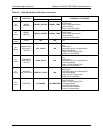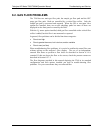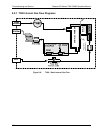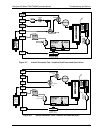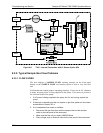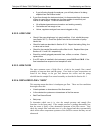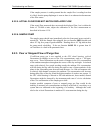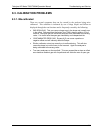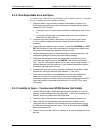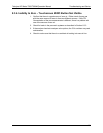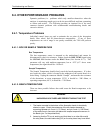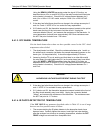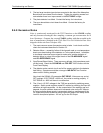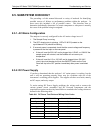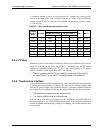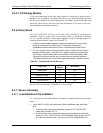
Troubleshooting and Service Teledyne API Model T360/T360M Operation Manual
242
8.3.2. Non-Repeatable Zero and Span
As stated earlier, leaks both in the T360 and in the external system are a common
source of unstable and non-repeatable readings.
1. Check for leaks in the pneumatic systems as described in Section 6.3.3.
Don’t forget to consider pneumatic components in the gas delivery system
outside the T360. Such as:
A change in zero air source such as ambient air leaking into zero air line,
or;
A change in the span gas concentration due to zero air or ambient air
leaking into the span gas line.
2. Once the instrument passes a leak check, do a flow check (see Section
6.3.4) to make sure adequate sample is being delivered to the sensor
assembly.
3.
A failing IR photo-d
etector may be at fault. Check the
CO2 MEAS and CO2
REF
test functions via the front panel display to make sure the signal levels
are in the normal range (see Appendix A) and are quiet.
4. Confirm the sample pressure, wheel temperature, bench temperature, and
sample flow readings are correct and have steady readings.
5. Disconnect the exhaust line from the optical bench near the rear of the
instrument and plug this line into the
SAMPLE inlet creating a pneumatic
loop. The CO
2
concentration (either zero or span) now must be constant. If
readings become quiet, the problem is in the external pneumatics supplies
for sample gas, span gas or zero air.
6. If pressurized span gas is being used with a zero/span valve option, make
sure that the venting is adequate (see Sections 3.1 and 3.6.2).
7.
If it is the zero point that is non-rep
eatable, and if that non-repeatability
seems to only occur at a certain time of day, such as when worker
occupancy is highest or lowest, make sure the flow of purge gas to the GFC
wheel housing has not stopped (see Sections 8.2.3 and 8.5.7.3 for more
information).
8.3.3. Inability to Span – Touchscreen SPAN Button Not Visible
1. Confirm that the carbon dioxide span gas source is accurate; this can be
done by switching between two span-gas tanks. If the CO
2
concentration is
different, there is a problem with one of the tanks.
2. Check for leaks in the pneumatic systems as described in Section 6.3.3.
3. Make
sure that the expected span gas concentration entered into the
instrument during calibration is the correct span gas concentration and not
too different from expected span value. This can be viewed via the
RNGE
Menu (see Section 4.8).
4. Che
ck to make sure that there is no ambient air or zero air leaking into span
gas line.
07272B DCN6552



